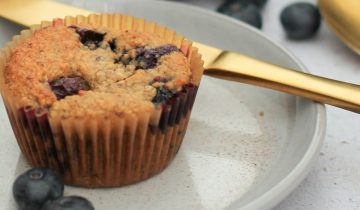Have you ever wondered what exactly the immune system is and how you can take care of it? Rhiannon Lambert, leading Registered Nutritionist and founder of Rhitrition, provides us with an introduction to immunity and ways we can support the functioning of our immune system.

Introduction to immunity
Our immune system is incredibly powerful and complex and helps us fight off infections that are critical for survival.1 It is our bodies natural defence mechanism against bacteria, viruses and fungi.1
When we discuss immunity, we look at two main responses to infection: the adaptive and the innate immune system.1
The innate response is our initial reaction when exposed to a pathogen, it is incredibly rapid but not very specific1. Think about it like your General Practitioner (GP), able to rapidly treat a number of problems, but sometimes it’s not their specialism to target and you may need a referral later on. In terms of the immune system, this makes it less effective for a specific pathogen. Examples include our skin, mucus membranes and white blood cells called phagocytes.2
Our adaptive response in comparison is highly specific, as it is our bodies response to a pathogen it has already met before, and it has a great memory!1 Imagine this as the specialist you’ve been referred to from your GP, whilst it may take longer to get there, it’s their area of expertise, and therefore highly effective at treating the problem. Examples of this include the white blood cells called B-cells which produce antibodies, and T-cells which are responsible for defence.2 However, it’s important to note that like the GP and specialists, both the innate and adaptive immune system do support and work together to solve the problem.
If you’ve never had a virus before, the initial response will come from the innate immune system, and after time if unsuccessful, the adaptive response will kick in.2 This response is the reason we only get viruses like chickenpox once – our adaptive immune system has the highly specific antibodies ready to prevent us being ill again.2
The importance of a balanced and varied diet
When we look at our dietary intake and the immune system, it starts to get more complicated, because there is no specific diet than can prevent you catching a virus, and no food that can ‘boost’ the immune system.3However, eating sufficient food that is part of a balanced and varied diet can help ensure our immune system is working to its normal level.3
To give an example, Vitamin A found in cheese, eggs and oily fish is thought to help the immune system work normally, but equally B-vitamins are important for the function of our nervous system.4 There is no vitamin or mineral in isolation that can prevent you catching a virus – they all serve an important purpose for our body to function effectively.4 It is also important to note that over supplementing any vitamin or mineral can have detrimental effects on our health, so you must consult your doctor or dietitian when starting a supplement.4,5However, the government does recommend a daily Vitamin D supplement during autumn winter months for those of us that live in the UK, and throughout the year if you have a darker skin tone.6 The Eat Well Guide is a good reference for what a balanced and varied diet looks like, and is shown below.7

To summarise7:
- Aim to eat at least 5 portions of fruit and vegetables a day – and remember a portion of juice can only count once at 150ml.
- Over a third of the food we eat should come from carbohydrates like potatoes, pasta and bread, choose wholegrain and high fibre carbohydrates where possible.
- Have some dairy or dairy alternatives daily, they are excellent sources of calcium and protein. Vegan alternatives include Soya milk, tofu and plant yoghurts.
- Try and reach for pulses and beans and your 2 portions of oily fish a week. Try to limit your processed and red meat intake.
- A small amount of fat is important, opt for unsaturated options more frequently.
- Try to reach your 6-8 glasses of fluid a day – opt for lower sugar options.
- If you drink alcohol try drink less than 14 units a week with several alcohol-free days a week.8
The benefits of a balanced and varied diet aren’t just about giving us the essential energy and micronutrients that we need, it is also great for our gut. In fact, research shows the link between our diet, immune system and our gut microbiome is incredibly complex, with each component influencing eachother.9 Having a variety of fibre rich foods is the best way to support your gut health.10
Remember – it is not just diet.
It is important to remember that our lifestyle as a whole is one that supports a functioning immune system. Maintaining a balanced and varied diet, regularly exercising, getting enough sleep, managing mental health and trying to limit excessive alcohol consumption over a long period of time, all help maintain our normal immune system. If you are struggling with your mental health or dietary intake, it is important to seek health from a qualified medical professional.
References
- https://www.ncbi.nlm.nih.gov/pmc/articles/PMC6723551/
- https://www.ncbi.nlm.nih.gov/books/NBK279396/
- https://www.bda.uk.com/resource/there-is-no-diet-to-prevent-coronavirus.html
- https://www.nhs.uk/conditions/vitamins-and-minerals/others/
- https://www.bda.uk.com/resource/supplements.html
- https://assets.publishing.service.gov.uk/government/uploads/system/uploads/attac hment_data/file/537616/SACN_Vitamin_D_and_Health_report.pdf
- https://www.nhs.uk/live-well/eat-well/the-eatwell-guide/
- https://www.bda.uk.com/resource/alcohol-facts.html
- https://www.ncbi.nlm.nih.gov/pmc/articles/PMC4056765/
- https://www.bda.uk.com/resource/give-your-friendly-gut-bacteria-a-helpinghand.html
Rhitrition | 10 Harley Street, London, W1G 9PF | Rhitrition.com
Registration No 10111200






 No products in the cart.
No products in the cart.